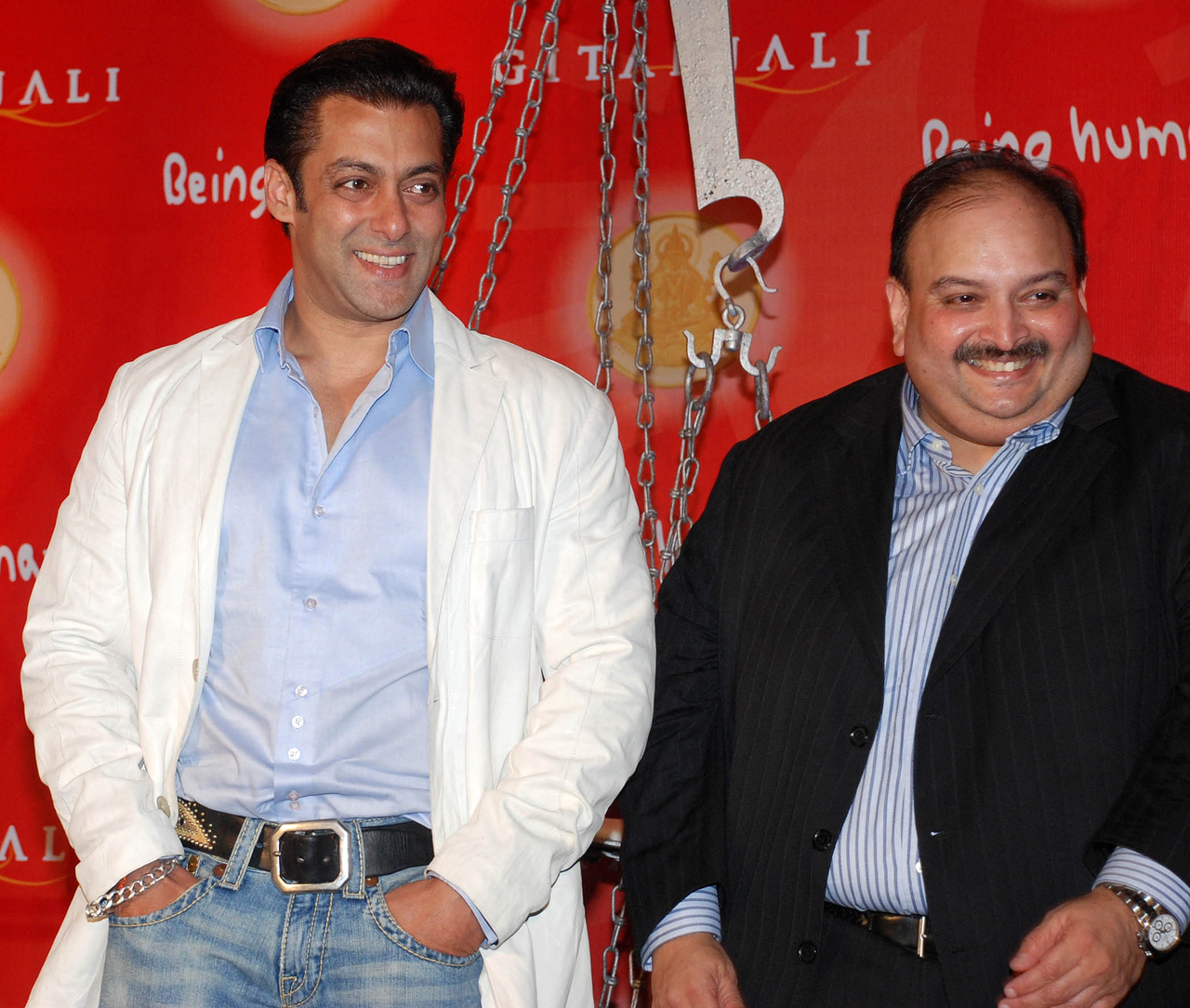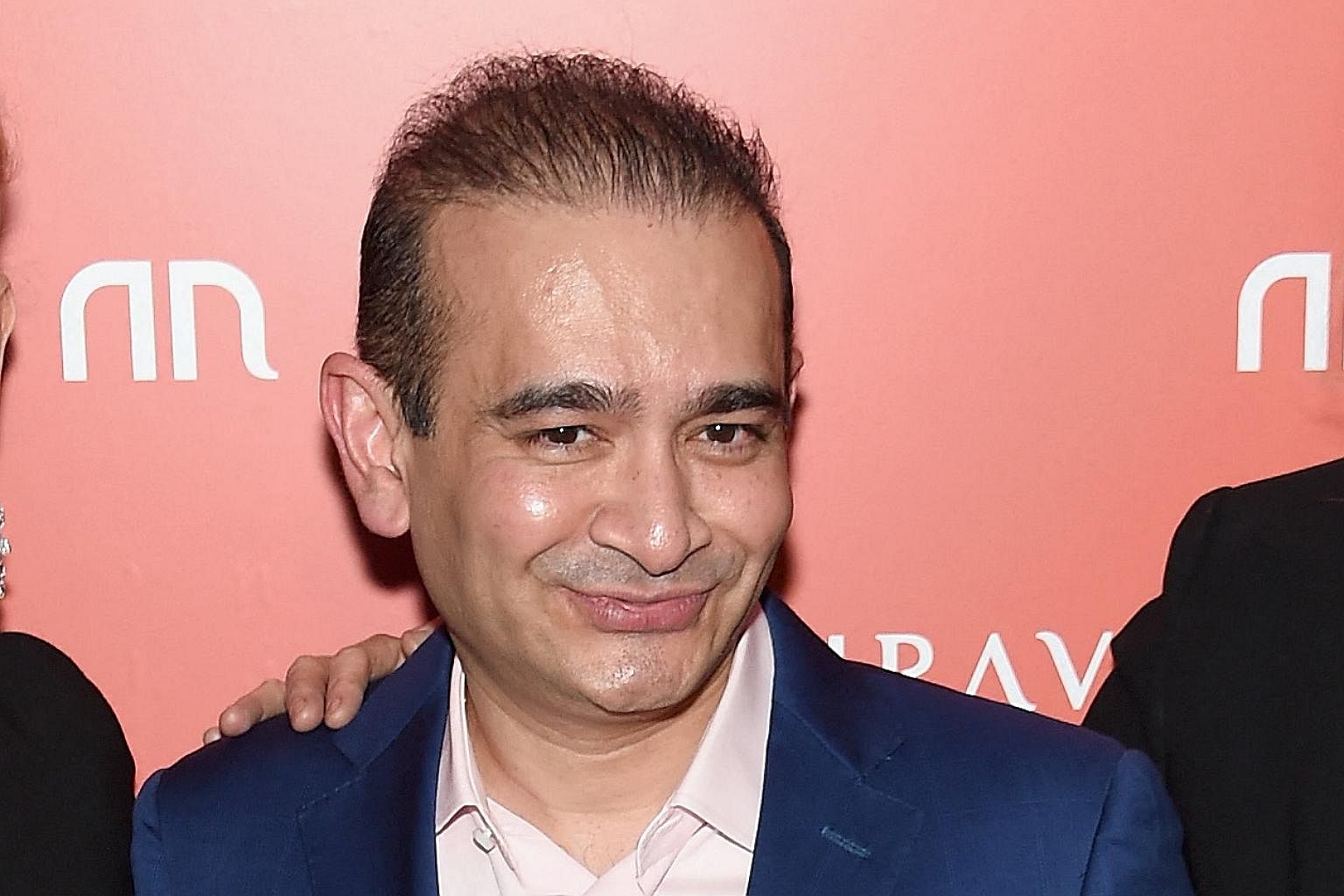India struggles to bring overseas white-collar crime suspects home
Sign up now: Get insights on Asia's fast-moving developments

Diamond tycoon Mehul Choksi (right) with actor Salman Khan in Mumbai on Sept 15, 2009.
PHOTO: AFP
BANGALORE - Indian investigative agencies are struggling to capture suspected white-collar criminals who have evaded trial simply by leaving the country and not coming back.
In 2020, the central government told Parliament that about 70 people accused of bank fraud or financial crimes had fled India since 2015 and were living abroad. According to a law enacted in 2018, they are "fugitive economic offenders".
Many of the alleged fraudsters seem to favour the Caribbean as a destination, the agencies found. Countries in this region are not among the 48 nations with whom India has an extradition treaty, which means the governments are not obliged to send the suspects to India for trial.
Diamond tycoon Mehul Choksi, who is accused of involvement in a US$1.7 billion (S$2.3 billion) bank fraud case, became a citizen of Antigua and Barbuda in 2018, shortly before news of the fraud became public.
Another diamond trader, Jatin Mehta, accused of defrauding Indian banks of US$900 million, is believed by Indian investigators to have been living in Saint Kitts and Nevis since 2013 after taking citizenship there.
Last October, the immigration authorities said they had prevented Preeti Chandra, accused with her family members of involvement in a US$260 million real estate fraud case, from fleeing India. She was heading for Dominica, where she had acquired citizenship.
At least five countries in the Caribbean - Antigua and Barbuda, Dominica, Grenada, Saint Kitts and Nevis, and Saint Lucia - offer "citizenship by investment" (CBI) to foreigners.
Antigua and Barbuda, for instance, offers citizenship to anyone who donates US$100,000 to its National Development Fund, as one of the options. In exchange, applicants get a passport that allows visa-free or visa-on-arrival access to 150 territories, including Singapore, Britain and Europe's Schengen Area.
Saint Kitts and Nevis has had an official CBI programme since 1984.
Such programmes provide much-needed revenue to the Caribbean governments, explaining why they accommodate rich fugitives. In 2021, CBI revenue made up 30 per cent of Dominica's gross domestic product.
India's record of extraditing fugitives is already poor. A 2018 paper by think-tank Observer Research Foundation estimates that only one in three Indian fugitives is successfully brought back. Most extraditions are for crimes such as murder.
For instance, although India does have an extradition treaty with Britain, it has been unable to extradite several high-profile fugitives from there.
In the past, British and European courts have denied Indian extradition requests, stating that detention in Indian prisons - which are notoriously overcrowded and violent - would amount to torture, which is prohibited under the United Nations Convention Against Torture and the European Convention on Human Rights.
In 1996, for instance, the European Court of Human Rights blocked the extradition of Karamjit Singh Chahal, who was accused of terror-related offences in India, saying it would expose him to torture. India does not have a law that specifically prohibits torture.
Several high-profile Indian fugitives in Britain have brought up fears of torture and other ill-treatment to challenge their extradition.
However, in recent years, British courts have accepted Indian government assurances that fugitives would have access to separate prison facilities and be kept away from regular prisoners. (There was no assurance that general prison conditions would improve.)
In 2020, cricket bookie Sanjeev Chawla, who faces charges of fixing international matches, was extradited from Britain following Indian assurances that he would not face overcrowding or lack of medical attention in the Tihar jail in New Delhi.
In the case of flamboyant billionaire Vijay Mallya, who is accused of defrauding Indian banks of US$1.2 billion, a British court accepted Indian assurances after video evidence was provided of a separate barracks for high-profile detainees in Mumbai Central Prison that had adequate light and ventilation. Mallya has not yet been extradited because of other pending legal issues.

Diamond trader Nirav Modi, who is related to Choksi and is wanted in the same bank fraud case, is challenging his extradition to India on the grounds that he would not receive adequate mental healthcare at Mumbai Central Prison. Modi is currently in detention in a London prison.


